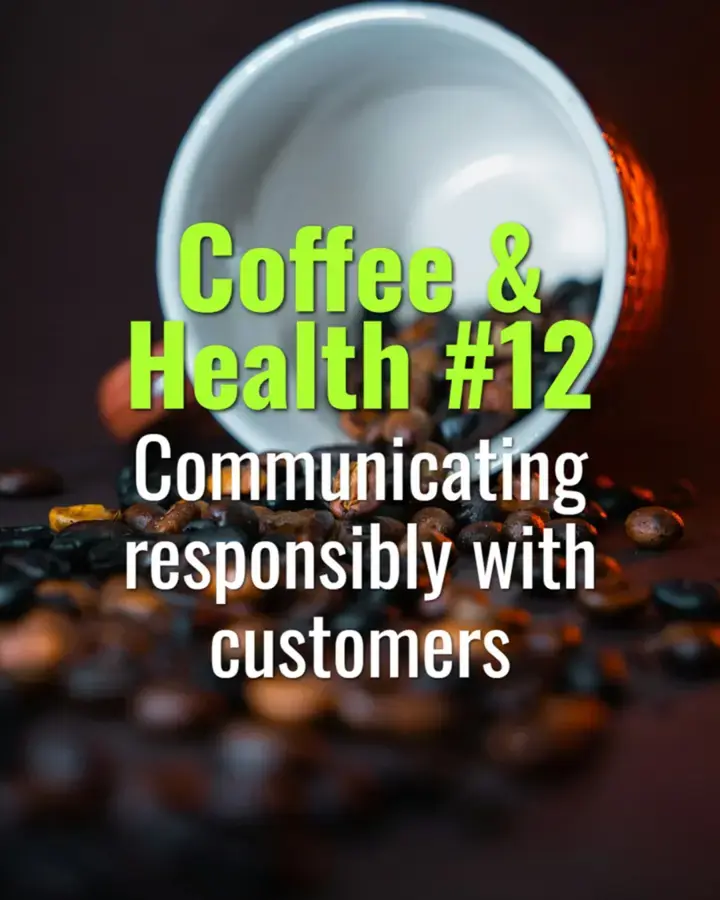Communicating responsibly with customers
How cafés, roasters, and coffee professionals can responsibly share health-related information with customers without exaggeration or misinformation.
- Coffee Basics Nerds
- 2 min read
Article 12 of 12 in Coffee & Health/

Why Responsible Communication Matters
- Customers are increasingly interested in coffee’s health impacts.
- Misleading or exaggerated claims can damage trust and even carry legal risks.
- Clear, responsible communication enhances credibility and customer loyalty.
Principles of Responsible Communication
- Accuracy: Base claims on credible research (WHO, FDA, EFSA, peer-reviewed studies).
- Balance: Highlight both benefits (antioxidants, potential protective effects) and considerations (caffeine sensitivity, pregnancy guidelines).
- Transparency: Be clear about caffeine content, additives, and allergens in menu items.
- Avoid Absolutes: Don’t claim coffee “prevents” disease—say it “may be associated with reduced risk.”
Practical Applications
- Menu & Marketing:
- Say: “Rich in antioxidants” rather than “Boosts immunity.”
- Say: “Contains about 80 mg caffeine per shot” instead of “Gives you energy.”
- Customer Conversations:
- Train staff to answer common questions (pregnancy, decaf safety, hydration) with simple, factual language.
- Encourage moderation and individual awareness of tolerance.
- Labeling:
- Provide clear allergen and caffeine disclosures for specialty drinks.
Building Trust
- Refer customers to official health resources if they seek detailed medical guidance.
- Show integrity by acknowledging uncertainties or individual variability.
- Promote coffee as part of a balanced lifestyle, not a cure-all.
Summary
Responsible communication means sharing accurate, balanced, and transparent information. By avoiding exaggerated health claims and training staff to respond knowledgeably, cafés and roasters can build trust, respect customer health needs, and strengthen long-term relationships.